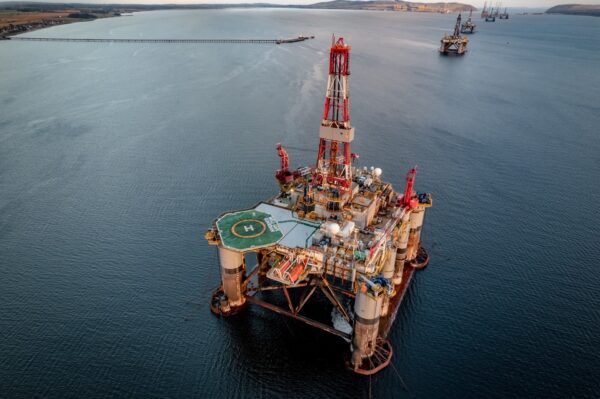The UK’s decision to issue new oil and gas exploration licences is being challenged in court by Oceana UK, which argues ministers unlawfully failed to consider the impact on marine life.
Oceana UK has moved forward with its legal challenge over fossil fuel exploration licences issued in May 2024 as part of the North Sea Transition Authority’s latest oil and gas licensing round, filing its case at the High Court. In response to the initial threat to take the government to court over the harm to UK seas, ahead of the election, the previous government stated that it would defend the decision.
An exploration licence does not necessarily result in a producing field, though environmental groups argue that expansion of oil and gas production is inconsistent with the government’s target to become a net-zero carbon economy by 2050.
Oceana and other members of the Ocean Alliance Against Offshore Drilling have now written to Ed Miliband, the Secretary of State for Energy Security and Net Zero, urging the new government to accelerate the UK’s move away from fossil fuels and concede Oceana’s case.
The letter asks that the Secretary of State ‘brings an end’ to the licences which overlap with several areas designated for wildlife. It invites the government to concede the claim and signal a ‘clear departure’ from the reliance on fossil fuels.
Naomi Tilley, Campaign Lead at Oceana UK, said: “These licences were issued with a shocking disregard for expert advice, as well as our seas, climate and future. With its commitment to end oil and gas licences, the new government has started down a world-leading path, and now it has a crucial opportunity to honour the spirit of that ambition, by calling time once and for all on these licences and the destruction and degradation caused by Big Oil running roughshod over our ocean.”
The claim will challenge the ‘Appropriate Assessments’ made by the former Secretary of State under the Conservative administration, arguing they largely ignored advice from independent government experts about the potential effects on sensitive Marine Protected Areas (MPAs).
Oceana UK said that these bodies – the Joint Nature Conservation Committee and Natural England – advised that they could not conclude that the drilling will have no adverse effect on the designated sites. Oceana UK went on to say that more than a third of the licences overlap with MPAs, which were established to protect habitats and species that are essential for ocean health.
There should be no ‘illusion’
Separately, at the launch of a World Meteorological Organization report into sea level rise, ocean warming and acidification in the Pacific Islands, UN Secretary General when asked whether he believes it is acceptable to be continuing to approve new coal and gas projects, Guterres said the ‘situation of different countries is different’ but there should be no ‘illusion’. ‘Without a phase-out of fossil fuels in a fair and just way, there is no way we can keep the 1.5 degrees alive,’ Guterres said in a reference to the Paris climate agreement goal of holding temperature rise to 1.5C above pre-industrial levels.
